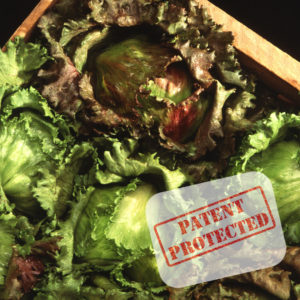
The Patent and Trademark Office (PTO) is currently accepting public comments on new initiatives to ensure “robust and reliable patents.” The PTO published these initiatives in response to a July 9, 2021, Executive Order on Promoting Competition in the American Economy and is now calling on the public to respond to their ideas and to weigh in with “other suggestions to achieve the aims of fostering innovation, competition, and access to information through robust and reliable patents.”
We at Organic Seed Alliance view this invitation as an important opportunity for communicating necessary improvements for how patent applications related to seed-producing plants are reviewed to ensure that the system is not being misused and abused. For example, naturally occurring traits should not be awarded utility patents, and yet we see patents in effect for traits like the color red in lettuce, downy mildew resistance in cucumbers, heat tolerance in broccoli, and more.
We know the seed industry is one of the most consolidated sectors in agriculture. Utility patents foster the concentration of market power and ownership of seed, which limits choice in the seed marketplace, squeezes out competitors, and makes our seed supply – and thus food supply – less secure. We submitted extensive public comments to the USDA on these topics earlier this year.
Utility patents are the wrong tool for protecting developments in plant breeding. Unlike other agricultural inputs, seed is a natural resource that requires careful management to sustain modern food systems and those of future generations. Seeds do not fit the utility patent model because they produce food: a universally recognized human right that replicates when planted in the ground and that has evolved over thousands of years.
One of the reasons that utility patents on seed are so problematic is that owners of utility patents have far-reaching control over access and use of their products, including plant varieties and genetic traits. This means that patents remove valuable plant genetics from the pool of seed that breeders and growers rely on for improving crops, feeding communities, and exercising independence in the seed system.
The comment period now open is encouraging the public to respond to a number of questions in the areas of prior art sources, requirements for the continuation of patents, the fee amounts and structure for patent applications, and more. This is an important opportunity to highlight concerning examples of patents on seed and how they impact the public, as well as the current PTO processes and procedures that allow for the misuse of the patent system as it is being applied to seed-producing plants and genetic traits.
Read the full invitation for comments in the Federal Register here.
Comments should be submitted at this link no later than February 1, 2023.
Questions? Contact us here.
